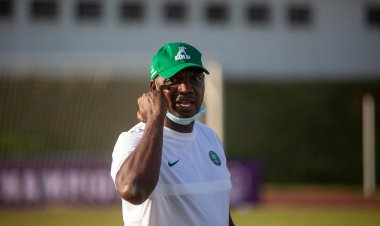Qatar 2022: Rooney believes Messi gives an extra edge
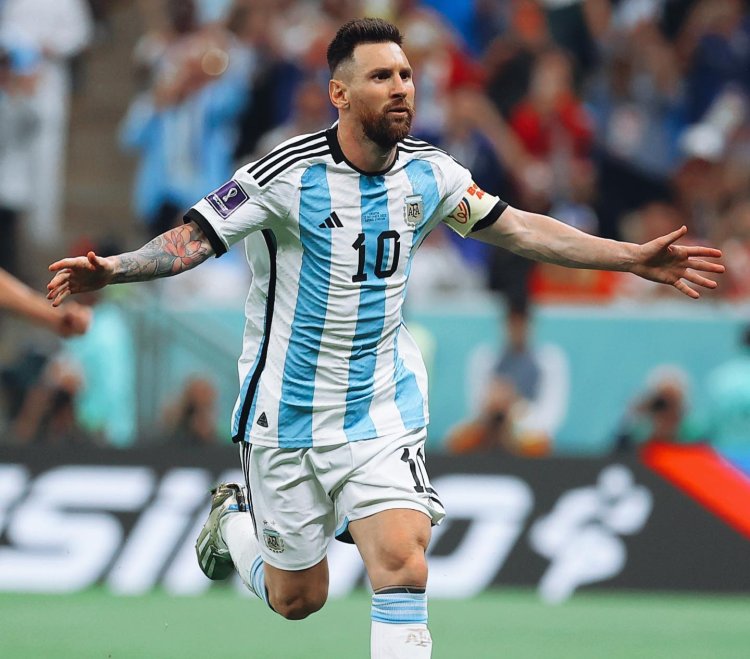
Former England forward Wayne Rooney saw first-hand what makes Lionel Messi such an incredible player during Manchester United’s defeats in the 2009 and 2011 Champions League finals
Rooney posited in his column in The Times of London that he is backing Argentina to win in Sunday final because of Messi .
“Only once in my career did I go home with the match ball from a game where I wasn’t given it for scoring a hat-trick. That was the 2011 Champions League final, when Barcelona beat Manchester United with one of the best team performances I’ve ever seen.
At the end I grabbed the ball and sought out Lionel Messi, David Villa and Pedro — Barcelona’s scorers. I got them to sign it and, as the scorer of United’s goal, put my own signature on it too. I still have the ball in my house.
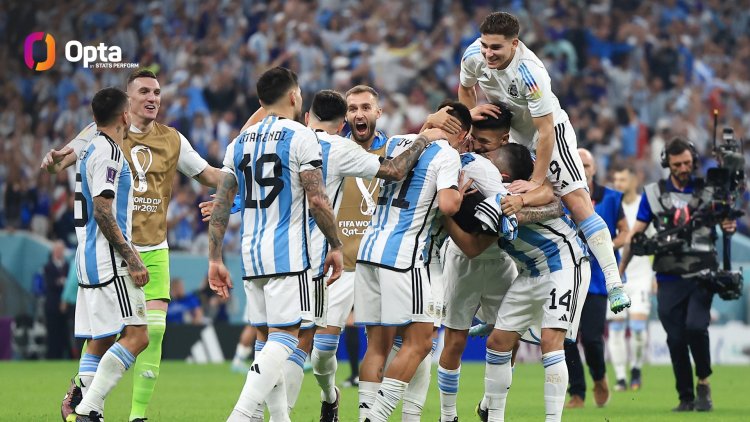
Why would I do something like that? We’d lost a final and I was gutted but I also had this sense of having been part of something special. It was a feeling that I had just shared a pitch with some of the greatest players who ever played. Barcelona were incredible and Messi was the catalyst for all of it.
In 2012, I wrote the following on Twitter: “Messi is a joke. For me the best ever.” On Wednesday morning, after watching him lead Argentina to the World Cup final with a masterclass against Croatia, I retweeted it with the words: “Nothing has changed.”
Some took that as a put-down to Cristiano Ronaldo but nothing could be further from the truth. I have the greatest respect for Cristiano and when people argue he is the greatest, I know where they are coming from and respect that opinion. But, for me, Messi is just different.
I played against him several times and it’s his ability to take and hold the ball, to control games, run at players, pass and score and be the difference.
Close up, you just can’t get near him. He is always in control. If he has the ball at his feet, he determines everything, your decision-making included. Being his opponent is a difficult place to be.
You want to go and press him but know that if you do, you’re not going to win the ball. There are times you can tackle him, like when he is dribbling directly at you, but usually you’re just not going to dispossess him. You’re bigger than him but can’t use your power against him — Xavi and Andrés Iniesta were the same.
When you get close, those players have this low centre of gravity and balance which, added to their close control, means there is no getting to the ball. They almost go under your challenge.
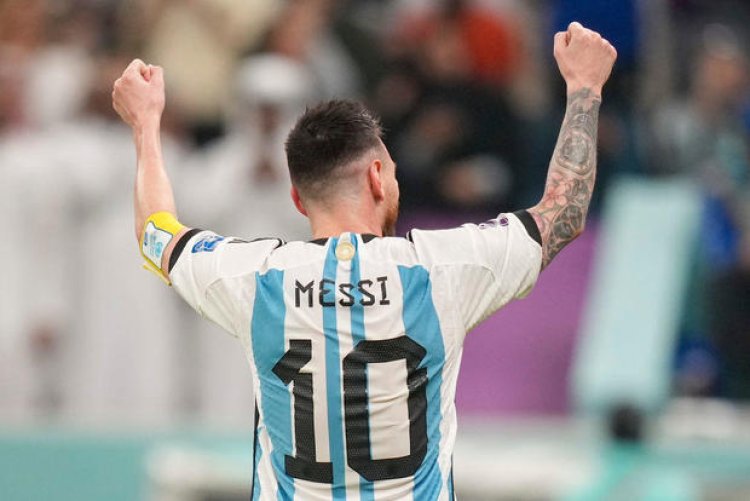
And when Messi gets near the penalty area, you’re in fear of putting your leg out because he can skip past you and you’ll give away a penalty or free kick in a dangerous position. And then there are the times he waits, doing nothing, and before you know it he has put the ball in the net.
A difference between Messi and nearly every other player who dribbles is that he’s always moving. There is almost never a point when he stops on the ball. He takes off with it and if his path is blocked, he’ll pass the ball to get it back.
You go and press and he pops it off and then you might switch off and in that moment he comes alive. You see it happening a lot: he passes, the defender gets lazy for a split second, and Messi takes the return pass and is away.
And it takes so much to deal with him that it’s tiring. He wears you down until he becomes almost impossible to stop.
There is just such joy watching his games. He has what Diego Maradona had in terms of the ability to go past players and then execute the full range of skills — pass, shoot, cross — and he has everything in terms of vision. You saw it with the goal he set up for Julián Álvarez against Croatia.
As a defender in the situation where Messi took possession you are supposed to show him the outside, and that’s what Josko Gvardiol did — so Messi just went down the line, turned Gvardiol this way and that, then went inside him anyway before producing the perfect cutback for Álvarez to score the third goal.
His ability to lay the ball off, get it back and score was seen in his goal against Australia. Think too about that moment against Holland when, with a little body movement, he made Nathan Aké almost fall over. Aké is a very good player.
In the 2011 Champions League final it was 1-1 at half-time and I was sitting in the dressing-room at Wembley thinking, “How the hell are we level here?” That mixture of Messi, Xavi and Iniesta proved unplayable. I found myself directly against Messi a couple of times during the game and just couldn’t get near him. He was popping up in different areas — midfield, out wide, No 9 — and nobody could touch him.
When Barcelona beat United in the 2009 final, he scored a great header — only the third headed goal of his career. He spent most of the game coming in from the right and yet in the key moment there he was on the left-hand side of the box, nodding home. You said to yourself, “What happened there?”
I don’t think I’ve heard him speak on the pitch. He leads Argentina by example, through actions not words, though I’ve never seen him celebrate the way he is celebrating goals and wins at this World Cup. I think he knows this is his last opportunity to win the trophy and he’s enjoying it. That’s what the best players do. They enjoy pressure.
I’ve met him a few times outside of games. The first time was the Fifpro awards in 2005 when I was young player of the year and Messi was at the ceremony. I met him at the Ballon d’Or awards in 2011, when I was in the team of the year — the forward line was me, Cristiano and him. He won the overall award and I remember speaking to him, Xavi and Iniesta. Gerard Piqué was my translator.
If there is one club I would love to have played for it was Barcelona, when they had that side. It was a funny feeling because there I was, in the team of the year with them, but I felt almost in awe of them.
Normally it’s only when you finish playing that you look back on people you played against and think, “Bloody hell, they were good.” But with those guys, I had the feeling at the time that they were the best. They played the way I love football to be played.
I admire both him and Cristiano for going about things their own way. Cristiano openly comes out and says, “I am the best, I want to be the best.” When Messi talks he focuses more on the team and the trophies he wants to win. Neither is right or wrong. It is how two different personalities motivate themselves.
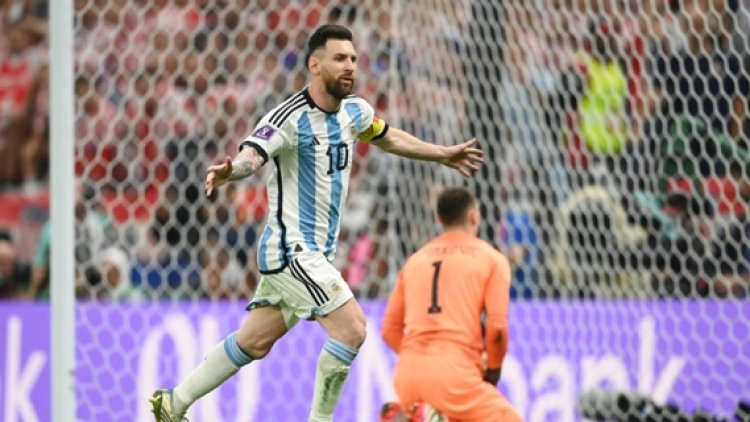
At the moment, Ronaldo is going through a difficult period and he’s 37 but he and Messi have achievements to their names that I don’t think we’ll see from any footballers again. In some ways they needed each other and, deep down, I suspect they have enjoyed their rivalry. When Cristiano went to Real Madrid they pushed each other: Cristiano would score two goals on a Saturday, Messi would score two the next day and they made each other reach even greater heights, and score more goals.
Neither ever did much in the way of defending. Messi is not going to track back for 90 minutes but he has never done that, not even as a young player at Barcelona. These days, at the age of 35, he is aware that he has to save his energies. What we see now is him picking his moments and coming alive at the right times to make the difference — and that’s where he’s been so effective in Qatar.
The thing Lionel Scaloni has done so brilliantly as Argentina head coach is to put together a team that supports Messi, accommodates him defensively, and works in the best way to make Messi flourish.
At Paris Saint-Germain, where Messi has not been quite as brilliant as at this World Cup, he is in the same side as Neymar and Kylian Mbappé and they are less geared to him and less reliant on him. By contrast, Argentina can’t win the World Cup without Messi and I think he enjoys that responsibility.
The previous Argentina sides he played for had other top players, such as Gonzalo Higuaín and Sergio Agüero, whereas the present team have lots of good players but no stars — except him — and maybe that dynamic works better. Really, Argentina’s strength is the collective.
They are almost a working-class team, in the sense they’re stubborn, hard to beat, and they’ll fight — fight for Messi, fight to stay in a game knowing that if they do, their captain will win it for them. They are a team of scrappers who just don’t know how to give in.
That is why I enjoy watching them more than France. They were my tips to win the World Cup before the tournament and I’m not changing that prediction now. Losing to Saudi Arabia in the opening game was a shock but might have brought them even closer together.
From that point on, every game they have played was a must-win and so they have been in that zone where they are focused to the maximum and ruthless, whereas France had that group match against Tunisia where they could rest players and take their foot off the gas. The extra edge to Argentina’s performances and mentality is one reason I think they will win.
The other is tactical. Messi and Mbappé are going to be on the same side of the pitch and because neither of them likes to do much defending, they are probably going to get more space in the channels than they’ve had in their previous games.
Their team-mates are going to have to deal with this and I think Argentina will defend more for Messi than France will for Mbappé.
Or, to put it another way, Messi and Mbappé will both get plenty of the ball but Argentina are better set up to limit Mbappé than France are to stop Messi.
It’s a game that feels iconic, like a Real v Barcelona clash, and the right final — a showdown between the two best teams. And it’s a fitting way to end what has been a brilliant World Cup, the best I’ve ever watched in terms of enjoyment”. Conclude Rooney



















